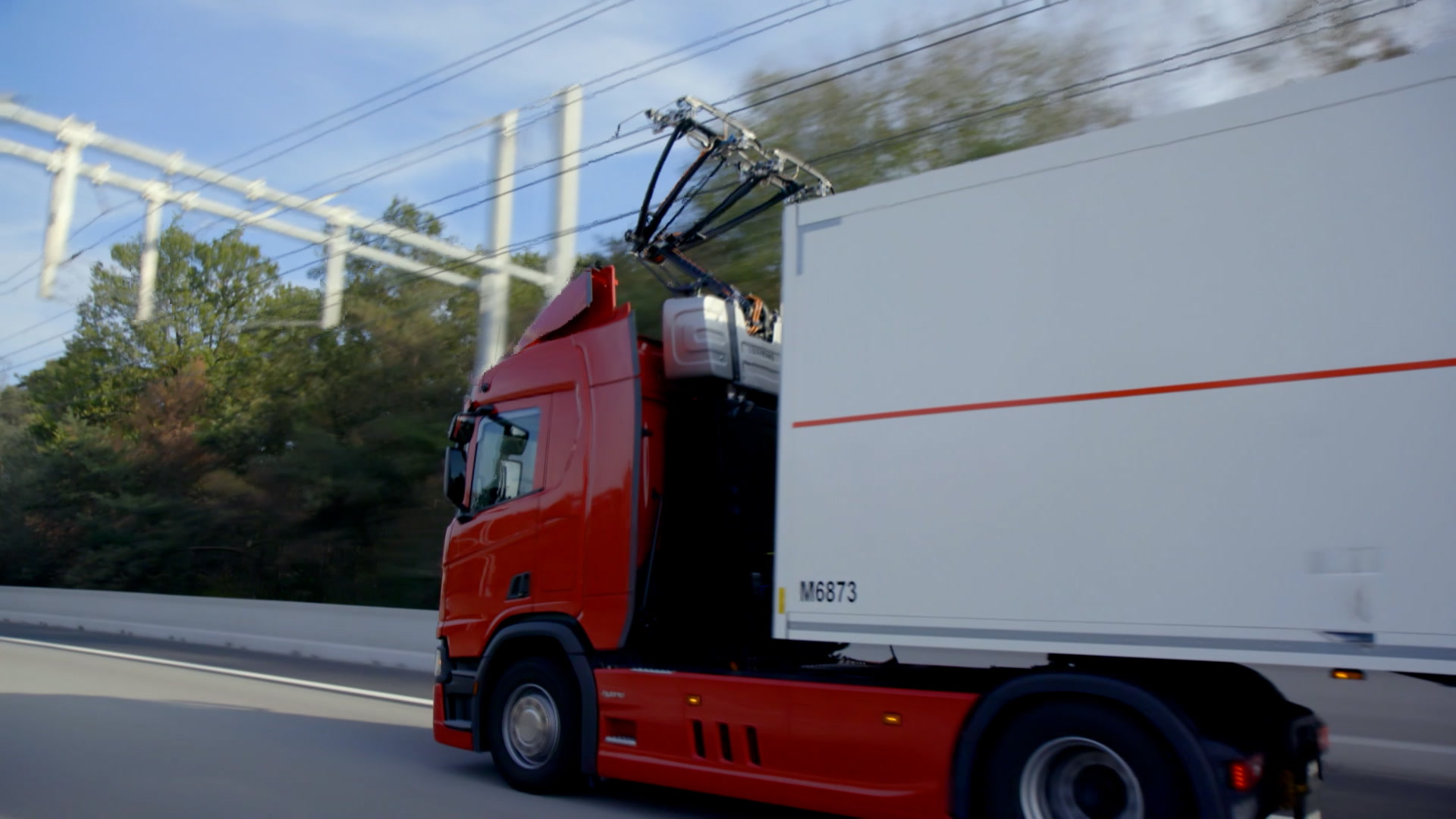Self-driving trucks are coming to Singapore's ports

A lead truck will be driven by a human, with the follower vehicles being automated. Image: REUTERS/Aly Song

Get involved with our crowdsourced digital platform to deliver impact at scale
Stay up to date:
Supply Chain and Transport
Singapore’s shipping ports are already among the busiest and most efficient in the world. Now the city-state is exploring a new way to make them run even better: convoys of driverless trucks operating between terminals. The idea is that a lead truck will be driven by a human, with the follower vehicles being automated.
This week, authorities signed agreements with two truck makers with strong track records in self-driving technology— Sweden’s Scania and Japan’s Toyota Tsusho—to work on the project. In the first phase, lasting about a year and starting this month, each company will design, develop, and test a truck platooning system in their respective countries. In the second, one company will be chosen for local trials on a 10 km (6.2 miles) stretch of Singapore’s West Coast Highway, hauling cargo between the Brani and Pasir Panjang terminals.

With the transport ministry and port authority teaming up on the project, Singapore authorities made the request for proposals back in October 2015. They noted at the time:
Autonomous truck platooning technology, which comprises one human-driven truck with one or more driverless trucks following behind, will help alleviate the shortage of manpower in the trucking industry and raise productivity with more cargo transported per driver. By shifting more haulage activities to off-peak hours, this can also help improve traffic flow during peak periods.
The companies will also work to “fully automate the processes for precise docking and undocking of cargo,” according to the agencies.
For the human drivers selected for the project, it will mean gaining valuable experience in a promising new area. Not many drivers are well versed in leading a series of automated trucks down a highway. Others, of course, will view the project with trepidation, fearing what it might mean for the future of truck-driving as a profession.
There’s little surprise in Singapore showing a strong interest in the idea. The tightly controlled city-state has long been a leader in creating highly managed driving environments. In 1998 it became the first country to manage traffic via electronic road pricing, and last August it was the first to offer self-driving taxis, beating Uber to the punch.
Don't miss any update on this topic
Create a free account and access your personalized content collection with our latest publications and analyses.
License and Republishing
World Economic Forum articles may be republished in accordance with the Creative Commons Attribution-NonCommercial-NoDerivatives 4.0 International Public License, and in accordance with our Terms of Use.
The views expressed in this article are those of the author alone and not the World Economic Forum.
Related topics:
The Agenda Weekly
A weekly update of the most important issues driving the global agenda
You can unsubscribe at any time using the link in our emails. For more details, review our privacy policy.
More on Supply Chain and TransportSee all
Rida Tahir
April 9, 2024
Kimberley Botwright and Spencer Feingold
March 27, 2024
Andrea Willige
March 19, 2024
Laia Barbarà and Claudia Galea
March 12, 2024
Zera Zheng, Rico van Leuken and Lars Karlsson
February 23, 2024






